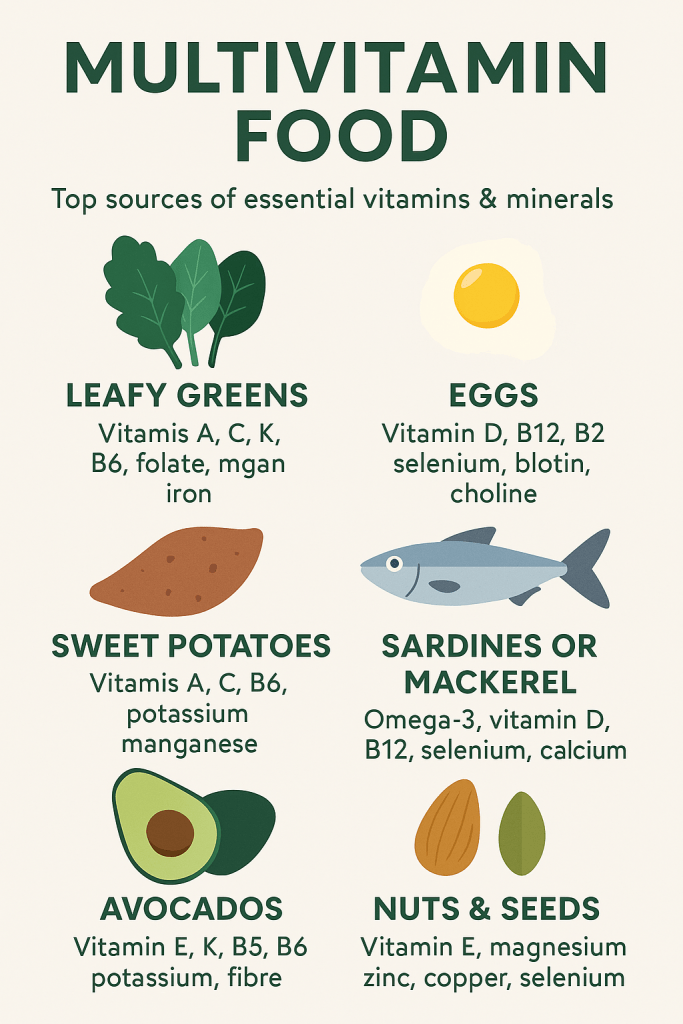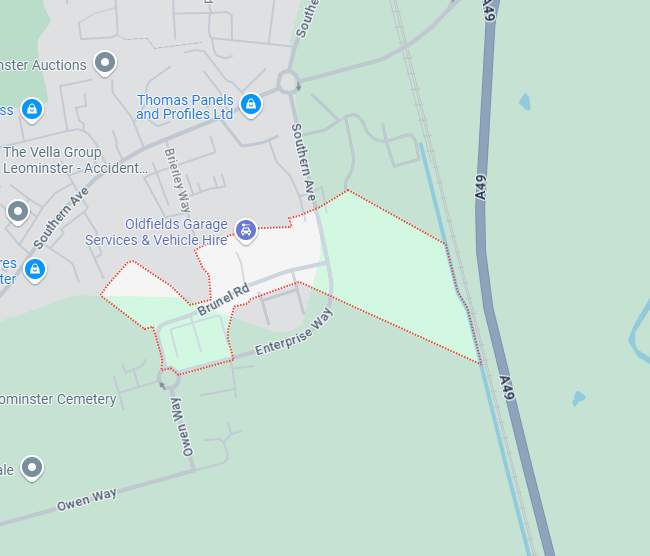Multivitamin Food: Real Nutrition Without the Pills
When people hear “multivitamin,” they often think of a plastic bottle rattling with tablets. But here’s a different take — multivitamin food. It’s not only real, tasty, and vibrant, but it also gives your body the full spectrum of nutrients in a form it actually recognises.
Because let’s be honest — synthetic supplements don’t always hit the mark. Your body wants balance, not a lab-made overload. And that’s where whole foods come in.
What Actually Is Multivitamin Food?
Simply put, multivitamin food is nature’s version of your daily supplement. It’s food so rich in nutrients that it supports multiple body systems at once — from your immune function and energy levels to your heart, skin, and brain.
These aren’t just one-hit wonders. They’re foods packed with vitamins, minerals, antioxidants, and fibre — all in their most absorbable forms.
We’re talking:
-
Leafy greens (like spinach and kale)
-
Berries (especially blueberries and goji)
-
Seeds (chia and flax are top contenders)
-
Sea greens (chlorella and spirulina)
-
Bright veggies (like peppers and carrots)
Each offers a complex mix of nutrients, much like a multivitamin tablet — but without the fillers, synthetic forms, or dodgy additives.
Why Multivitamin Food Is Better Than Supplements
Now don’t get me wrong — supplements have their place, especially if you’re deficient. But food-based nutrition is gentler, smarter, and often more effective long-term.
Here’s why:
-
Better absorption: Nutrients in whole foods are accompanied by enzymes, fibre, and co-factors that help your body absorb them.
-
Fewer side effects: No synthetic overload or unexpected reactions.
-
Balanced nutrition: Whole foods provide nutrients in proportions your body knows how to handle.
-
Added benefits: Beyond vitamins, you also get polyphenols, antioxidants, and gut-friendly fibre.
Also, many foods are now known to contain synergistic compounds that enhance the effects of vitamins. For example, eating iron-rich foods alongside vitamin C helps your body absorb more iron. That’s not something you get from a basic pill.
What the Research Says About Multivitamin Food
There’s growing research suggesting that nutrients from whole foods are more bioavailable — meaning your body can use them more effectively — than isolated nutrients in supplements.
Studies also show that diets rich in plant-based multivitamin foods are linked with better cardiovascular health, improved energy, and lower risk of chronic disease.
In short: food wins. Again.
Top Multivitamin Foods to Include Daily
If you want a natural daily boost, here are some smart picks:
-
Spinach: Packed with iron, folate, vitamin C, and vitamin K
-
Sweet potatoes: High in vitamin A, C, and fibre
-
Eggs: A great source of B12, D, and choline
-
Chia seeds: Full of omega-3s, calcium, and magnesium
-
Chlorella: A sea green rich in B vitamins, iron, and chlorophyll
-
Berries: Loaded with antioxidants, C, and flavonoids
-
Nutritional yeast: Naturally rich in B vitamins — especially if non-fortified
A mix of these each day can cover a lot of your nutritional bases without needing a single supplement.
How to Make It Easy
Here’s how to sneak more multivitamin food into your routine:
-
Add a handful of spinach to your morning smoothie
-
Sprinkle chia seeds into porridge or yoghurt
-
Cook with colourful veg — aim for at least three colours on your plate
-
Stir nutritional yeast into soups or sprinkle over popcorn
-
Make a berry smoothie with plant-based milk and a spoon of spirulina
These swaps are simple but effective. Plus, they actually taste good.
Are There Any Downsides?
Not really — unless you’re allergic or have a digestive issue with specific foods, multivitamin-rich meals are incredibly safe.
However, if you’re following a very restricted diet (like keto or low-FODMAP), you might need to be more strategic. That said, always do your own research, especially if you’re managing a medical condition.
Final Thoughts: Is Multivitamin Food Worth It?
Absolutely. Multivitamin food gives your body the nutrients it needs without the artificial extras. It supports energy, immunity, brain health, skin glow, and so much more.
Instead of popping another pill, start piling your plate with colour, variety, and whole-food brilliance. You’ll not only feel the difference — your body will thank you for it.
Real nutrition plays a quiet but powerful role in how the body feels each day. Choosing whole foods that naturally provide vitamins and minerals can help support steady energy, resilience, and overall balance. This food-first approach fits naturally within Physical Wellbeing | Supporting Balance in Everyday Life, where simple lifestyle choices are explored as part of maintaining long-term health without relying solely on supplements.





